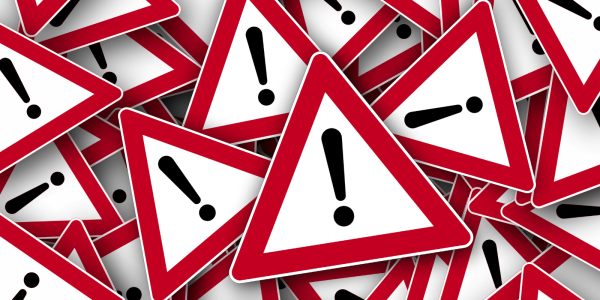Taxpayers warned - using call connection services could land you with huge bill
Taxpayers are being warned not to be caught out by expensive ‘call connection services’ when trying to contact HM Revenue and Customs (HMRC) telephone helplines. Some taxpayers inadvertently using these services have found themselves landed with a bill of more than £100 for a single call.

Call connection services are offered by private companies and appear in some search engine results as ‘ads’.1 These companies offer a service to put callers through to HMRC, using a premium rate number – making it far more expensive than calling HMRC directly. The Low Incomes Tax Reform Group (LITRG) is urging taxpayers to take care not to be caught out by these services when searching online for an HMRC helpline number.
Following a flurry of queries a few years ago, including from someone who was charged £115 for a 32 minute call to HMRC, LITRG campaigned to raise awareness of call connection services.2 Following a tightening of the rules in 2019,3 many call connection services seemed to disappear from the market, but more recently there seems to have been a resurgence in online advertising of call connection services to HMRC helplines.
LITRG is therefore urging taxpayers to be vigilant when searching for HMRC contact telephone numbers online to ensure they do not unwittingly use a call connection service – doing so could give rise to hefty and unexpected telephone bills.
Antonia Stokes, Technical Officer at LITRG said:
“Call connection services offer access to HMRC helplines but at very high rates. The companies we have seen recently are using premium rate 09 numbers with service charges of £3.60 per minute, often with an additional one-off connection charge, plus the caller paying their own telephone provider’s access charges. Considering the often long waiting times to get through to HMRC operators,4 mistaking one of these services for a direct call to one of HMRC’s own helpline numbers can be costly.
“We understand that call connection companies using premium rate numbers have to follow a Code of Practice,5 which includes providing transparency about pricing information. Nevertheless, we have recently heard from taxpayers who have mistaken these phone numbers for direct HMRC contact lines and who have been shocked to see the cost of the call on their phone bill.
“One recent example involved an individual who paid £140 for a call to HMRC as they inadvertently used a call connection service. With other pressures on living costs, this is a mistake most people can ill-afford. We have also heard from taxpayers who have been put off from contacting HMRC for help as they think they cannot afford the call charges – but those charges are via call connection services and not for calling HMRC directly.”
The main HMRC helpline numbers6 are usually “03” numbers – this means that calls should cost no more than calls to standard UK landline numbers7. Such calls will often be included in any inclusive minutes and discount schemes the caller may have with their landline or mobile provider.
LITRG has alerted HMRC to the situation, given that taxpayers may be being deterred from telephoning them or may end up with large phone bills. This can erode taxpayers' trust in the tax system and may contribute to non-compliance with tax obligations.
However, if call connection services are not found to be in breach of their industry Code of Practice, they can continue to operate. LITRG is therefore also urging people to be vigilant.
For example:
- Don’t assume the first search engine result is the direct number for the HMRC helpline you wish to contact
- Check the number you are dialling – most official HMRC helplines are “03” numbers. Numbers beginning 09, 087 and 084 carry extra charges or “premium rates”. HMRC do not use premium rate phone numbers.
- Check your internet search results carefully – read disclaimers and pay attention to the URL (website address). Official information on HMRC helplines will usually be found on GOV.UK.
- If you do use a call connection service inadvertently, follow the Phone-paid Services Authority (PSA) guidance on unexpected charges on your phone bill.8 In certain instances, the PSA (as regulator of certain telephone services) can investigate issues reported to them.9
Notes for editors
- For example, at the date of this press release, if “HMRC contact number” is typed into search engine Google using a smart mobile phone, the first two or three results are advertised links to call connection companies, not for the main GOV.UK HMRC contact page.
- LITRG produced several articles on the matter, including one in February 2016 and another in February 2019. LITRG also responded to a consultation from Ofcom on the matter, the submission being found here.
- Ofcom statement can be found here.
- The most recently published data from HMRC (for October 2022) suggests that average time to answer a call to HMRC was around 14 minutes.
- See the Phone-paid Services Authority website.
- HMRC contact numbers can be found on GOV.UK.
- Ofcom publishes a call costs guide on their website.
- See Phone-paid Services Authority blog: What to do if you’re seeking a refund for an unexpected charge on your phone bill.
- Issues can be reported to the Phone-paid Services Authority on their website.
